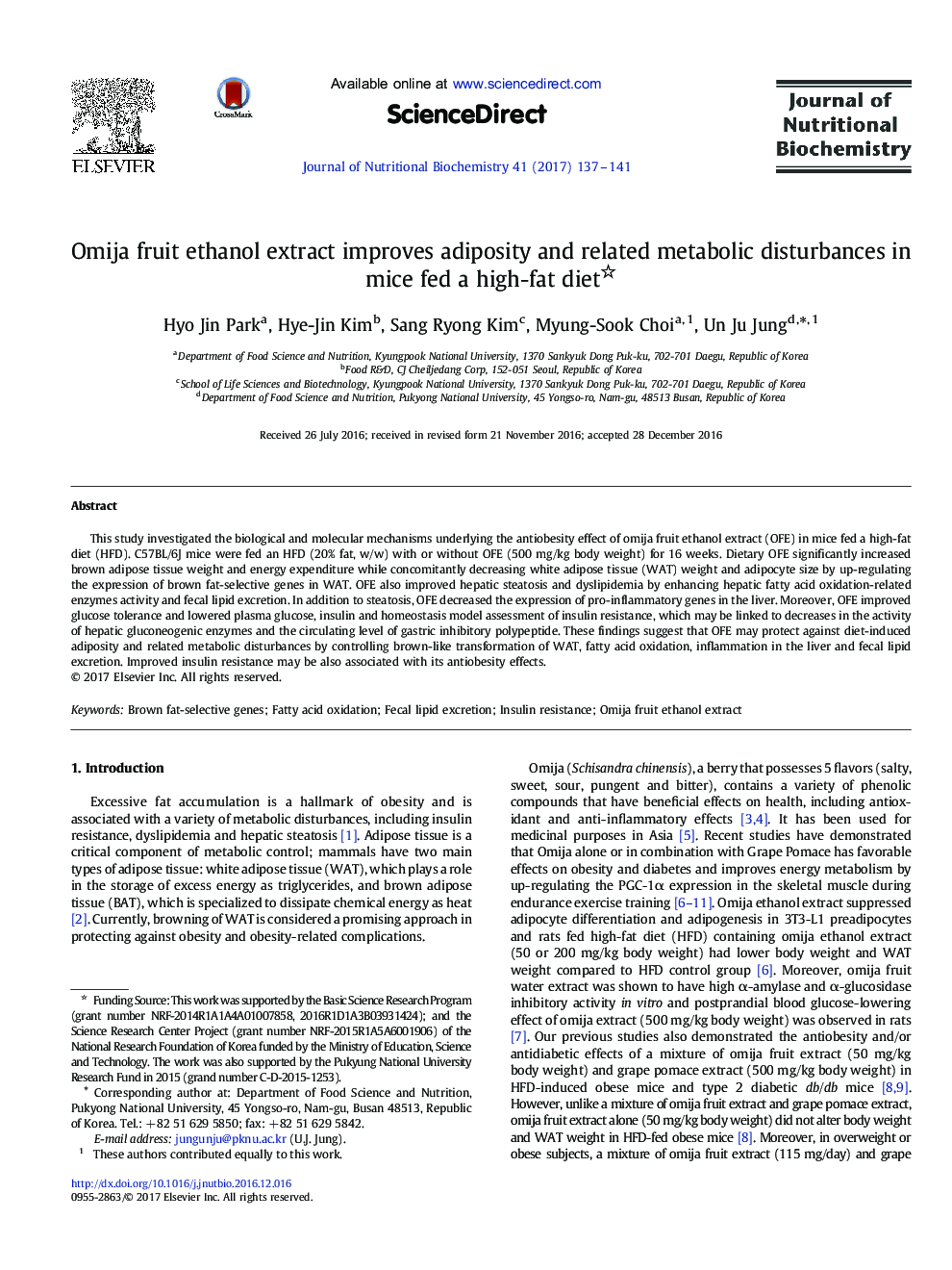| کد مقاله | کد نشریه | سال انتشار | مقاله انگلیسی | نسخه تمام متن |
|---|---|---|---|---|
| 5512953 | 1540627 | 2017 | 5 صفحه PDF | دانلود رایگان |

This study investigated the biological and molecular mechanisms underlying the antiobesity effect of omija fruit ethanol extract (OFE) in mice fed a high-fat diet (HFD). C57BL/6J mice were fed an HFD (20% fat, w/w) with or without OFE (500 mg/kg body weight) for 16 weeks. Dietary OFE significantly increased brown adipose tissue weight and energy expenditure while concomitantly decreasing white adipose tissue (WAT) weight and adipocyte size by up-regulating the expression of brown fat-selective genes in WAT. OFE also improved hepatic steatosis and dyslipidemia by enhancing hepatic fatty acid oxidation-related enzymes activity and fecal lipid excretion. In addition to steatosis, OFE decreased the expression of pro-inflammatory genes in the liver. Moreover, OFE improved glucose tolerance and lowered plasma glucose, insulin and homeostasis model assessment of insulin resistance, which may be linked to decreases in the activity of hepatic gluconeogenic enzymes and the circulating level of gastric inhibitory polypeptide. These findings suggest that OFE may protect against diet-induced adiposity and related metabolic disturbances by controlling brown-like transformation of WAT, fatty acid oxidation, inflammation in the liver and fecal lipid excretion. Improved insulin resistance may be also associated with its antiobesity effects.
Dietary omija fruit ethanol extract (OFE) increases brown adipose tissue weight and mRNA expression of brown fat-selective genes in white adipose tissue of high-fat diet-induced obese mice, which may increase energy expenditure and improve adiposity. OFE also ameliorates nonalcoholic fatty liver disease and dyslipidemia, in part, by increasing hepatic fatty acid oxidation and fecal lipid excretion as well as decreasing hepatic inflammation. Moreover, it improves hyperglycemia, hyperinsulinemia and insulin resistance, which may be linked to its antiobesity effects.209
Journal: The Journal of Nutritional Biochemistry - Volume 41, March 2017, Pages 137-141